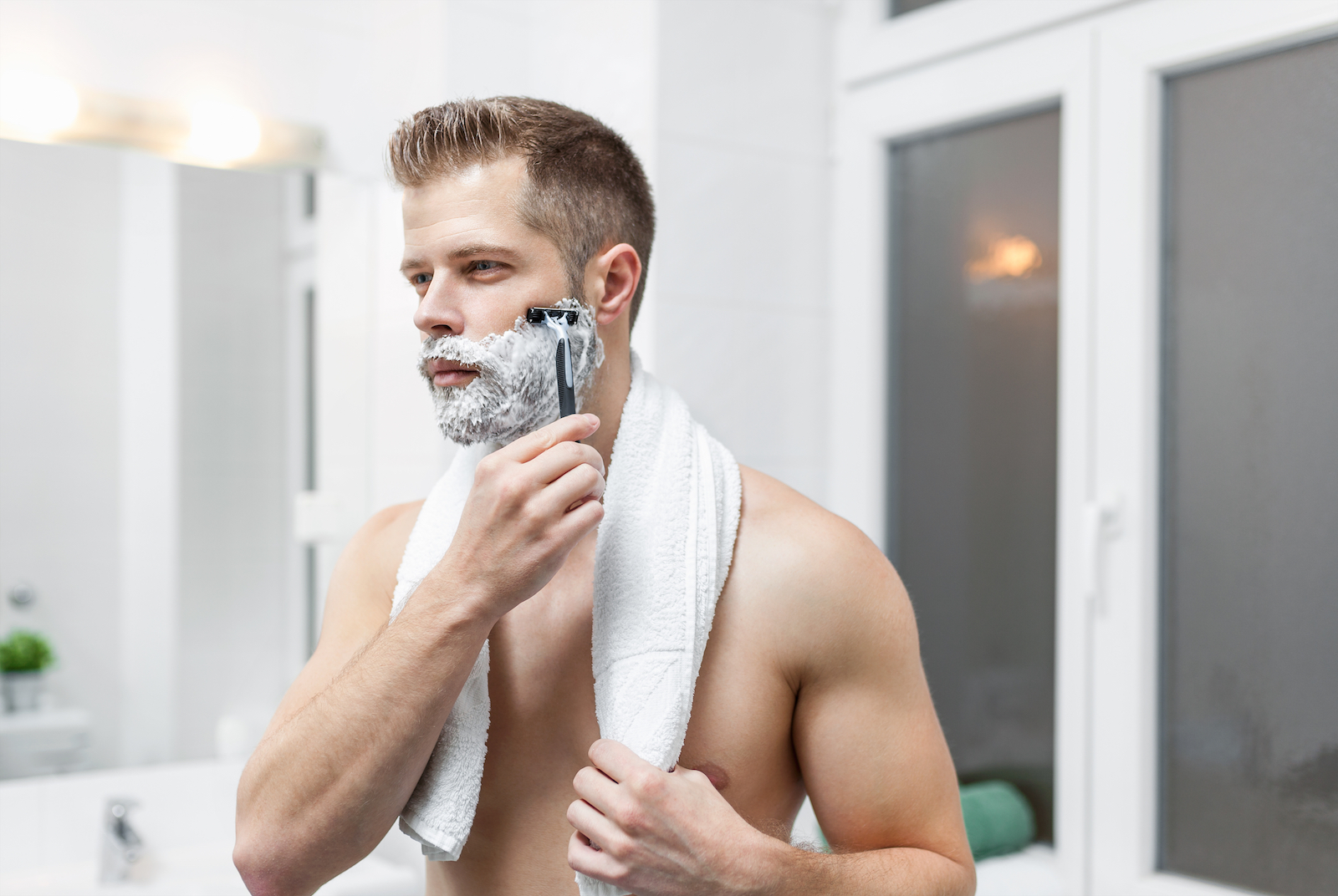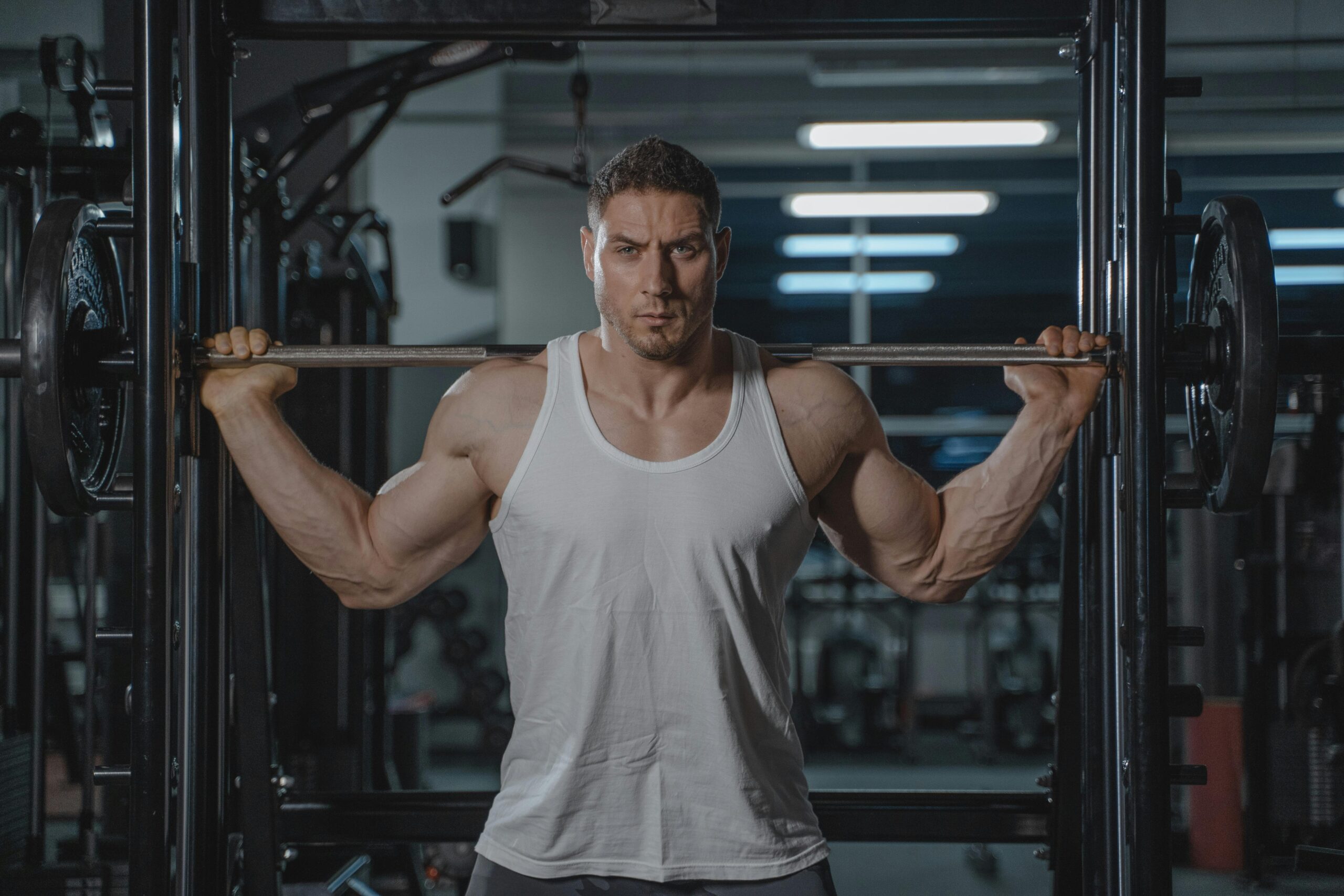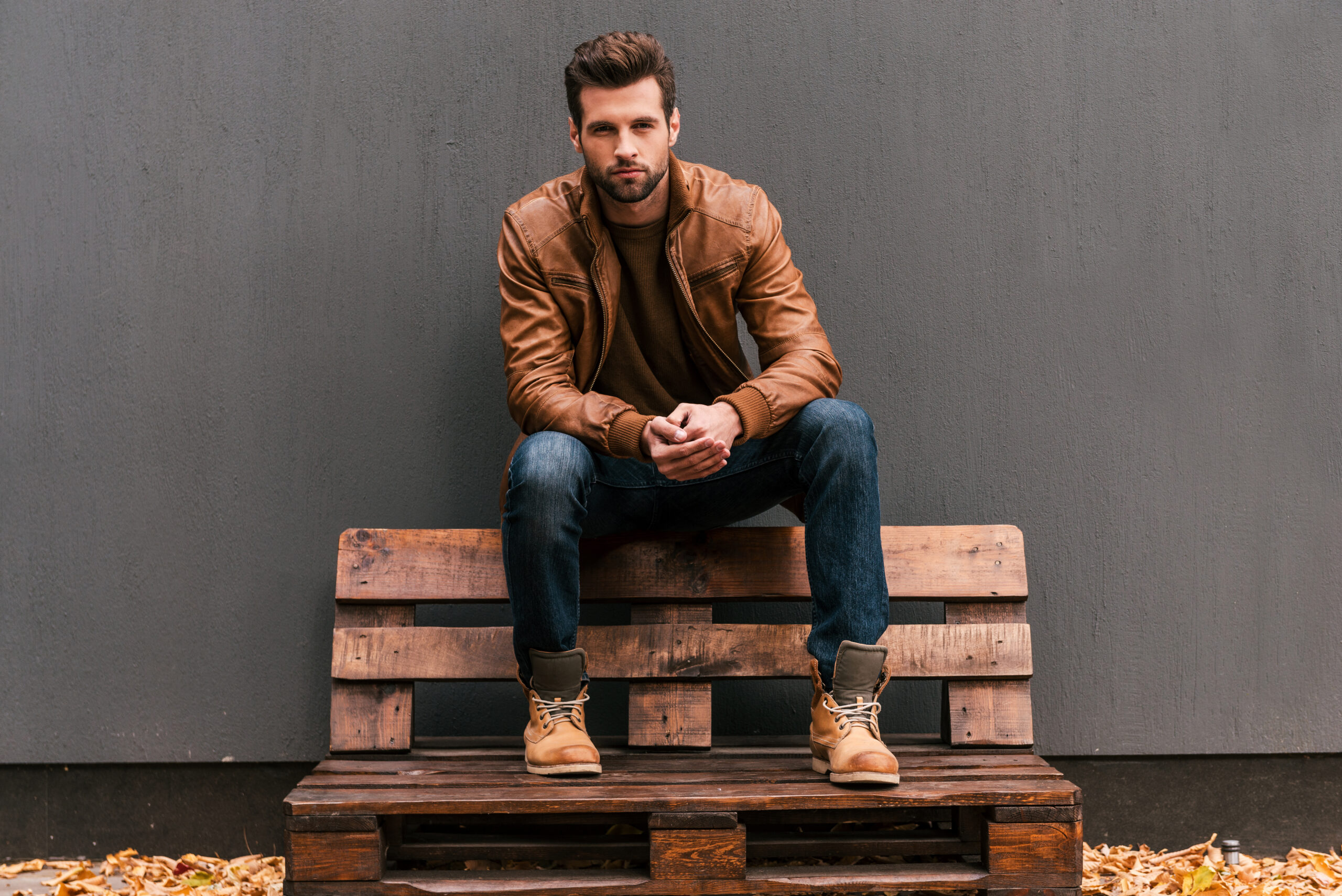What is the best men can get? Gillette certainly stirred up a lot of emotions with that commercial.
First of all, I’ll say it was certainly successful in terms of brand awareness.
But for making the world a better place and helping men be better? I doubt it. Because the men who actually really need to hear the positive ideas and values (stay with me a sec if you’re already triggered!) I believe they were trying to communicate aren’t taking it in – at all – the way it was presented.
There’s some good stuff in the ad and some that makes me roll my eyes in annoyance…at either misguided ideas, or, more likely, poor storytelling that also lacks depth of understanding.
So let’s start there, with the bad, and get it out of the way.
After reading a few articles on the subject from very different perspectives, it’s pretty clear to me that the biggest problem is that it’s hard to articulate the message and teach in a meaningful way that considers the full scope of things.
The only scene that really bothered me was at the 1:01 mark where one guy stops another guy from…as I and a handfull of other men I’ve heard from saw it…simply walking up to a woman on the street. But even that is such a matter of subjective interpretation, your perspective and background, and how you watch it.
Now let me paint several pictures.
When I first watched it, all I saw in the 3-second sequence was a guy who saw a woman he was interested in and wanted to go talk to her. I saw no catcalling or anything offensive.
I saw the message that “You shouldn’t even attempt to talk to a stranger you’re interested in, even in broad daylight in a very public place. It’s wrong.”
And as someone who’s had to work very hard on my self-esteem just to have any women in my life except platonic friends, that scares me a little, annoys me a lot, and makes me feel for all the men who struggle daily with painfully wanting to connect with women but are too afraid (and have been long before #metoo) to go say…anything. I get it. Hell, I still have days like that.
When that’s your daily reality for years or even decades on end, it can feel crippling. It can eat at your self-worth as a man to the point of lightly considering suicide (Hi! Thanks for basically no help there in 6+ years of therapy, psychologists and psychiatrists), doing it, or worst of all, becoming such a disgusting victim about it that you blame it all on women and other people and act out violently.
I watched the ad a few times seeing that.
But I missed something.
I was being slightly reactive, insecure, and victim-y myself the way I’d been watching that 3-seconds fly by. I finally took a much closer look at the guy who’s trying to approach the woman and realized he’s coming off pretty creepy. It’s not that he finds her attractive. Something’s just off. It’s kinda, sorta, borderline stalkerish energy. And I’m not a woman, so to women it might be VERY stalkerish energy.
And while many of us men have faced or are facing struggles that feel monumental around connecting with women, most of us are not facing everpresent safety issues like women are. So it’s healthy – for ourselves and for women – to keep some perspective on things women go through that we don’t even have on our radar most of the time.
Women have to think about their personal safety and surroundings everywhere they go. I can relate (slightly kinda sorta) because walking with a limp, there are times late at night or just in lonely parts of town when I’m walking by myself that I feel like an easy target – a wounded animal – to get jumped, and I see how some shady-looking characters loitering on the sidewalks watch me go by…or even try to talk to me.
That’s what the commercial is trying to communicate. Calling for us men to be leaders (a very attractive quality) and not stand by passively as we see cat-calling and stalkerish behavior.
At least…I think that’s what the commercial was trying to communicate. Because it’s not crystal clear and can be interpreted in very different ways.
Because it can be subtle and it flashes by – especially the part where his vibe is displayed. I don’t know if I would’ve ever picked up on the vibe thing a few years ago. The scene isn’t an effective teaching tool, and that subtlety serves more to widen the divide between groups of people than it does to help educate, bring us together, and make the world a safer place for women. I’m thankful that I can be self-reflective and examine it deeper, but for a lot of men, it’s easily interpreted as attacking. Who does that help?
You’ve got to understand and meet people where they’re at if you want to be effective, and Gillette sorely fails that.
An example: Our founders, Brian and Dave, helped me see that I’d bought into a lot of victim mentality around my disability. It was keeping my entire life small, me insecure and often unhappy, and it certainly wasn’t helping me attract kickass women.
But if they’d just said to me “You’re being a huge victim about your disability” on day one, I would’ve told them to fuck the fuck off, walked out of their old Westwood headquarters, and never talked to them again.
I wasn’t ready to hear that and wouldn’t have understood it.
You’ve got to educate people in a way they can understand. If, ya know, you actually want change.
The cut-scene with the boys wrestling is stupid, too. I just watched it back several times, and overwhelmingly what I see is two boys playfighting. Having fun together. Male bonding. No bullying involved.
Now, I’ve been in the situation where someone much bigger than me is throwing their weight around on me and I’m not ok with it…that’s not what this looks like at all. It’s a really poorly produced scene. For many who watch this, it comes off as demonizing any kind of masculine, even fully consensual roughhousing. And that’s just a non-starter for a lot of us.
I grew up an only child without a mentally stable father figure. I WISH I’d had more masculinity and roughhousing growing up.
The “Boys will be boys” part was probably unhelpful, too. Does toxic masculinity (we’ll define that later) need to be addressed? Absolutely. But again, to the people that most need to reflect on this stuff, it comes off like the #menaretrash thing: “All men are the same. All men are screwed up.”
And that’s what the tone of the whole ad feels like to a lot of men.
A common line of thinking I see around some of these types of things is that “It’s not all about you/men,” and “It’s your fault if you don’t get it.” But again, without empathy and helping people understand, you’re not accomplishing much but driving people further apart.
Have men always been empathetic towards women and all the crap (to put it lightly) they’ve faced? Definitely not, but that doesn’t make lack of empathy the other direction effective.
So Gillette isn’t helping there, either.
But let’s not reactively throw the baby out with the bath water.
There’s good stuff in the commercial, and I also want to challenge you to reflect a little more if you’re someone who was offended by it.
First of all, I think there’s a misunderstanding by many men of what “toxic masculinity” means. They hear it and think that masculinity itself is being deemed toxic. That’s not what it is.
What’s toxic – to men as well as to women – is a very narrow, restrictive definition of what masculinity and being a “real man” is. The kind of stuff we work through with men every day at FEARLESS.
In trying to put it into the right words here, I looked up a few different explanations, and I actually really like most of how the top urbandictionary.com definition put it:
“…Narrow repressive type of ideas about the male gender role, that defines masculinity as exaggerated masculine traits like being violent, unemotional, sexually aggressive, and so forth. Also suggests that men who act too emotional or maybe aren’t violent enough or don’t do all of the things that “real men” do, can get their “man card” taken away.
…
-That REAL men need to be strong and that showing emotion is a sign of weakness… unless it’s anger, that is considered okay.
-The idea that men can never be victims of abuse and talking about it is shameful.
-The idea that REAL men always want sex and are ready for it at any time.
-The idea that violence is the answer to everything and that REAL men solve their problems through violence.
-The idea that any interest in a range of things that are strictly considered feminine would be an emasculation of a guy.”
Hopefully, you can see how damaging this kind of old-school, narrow set of beliefs about “what makes a man a man” can be.
We teach men that emotional vulnerability, and embracing and expressing their emotions (in a non-needy, “This is what I’m truly feeling and I can handle it” type of way) is the strongest form of confidence and personal power.
We teach men that everyone has access to masculinity and femininity, that they’re both absolutely crucial in the world and life, and that a confident man isn’t afraid of his feminine side.
And we teach men that violence – when not protecting ourselves or someone else who’s being physically threatened…or in the confines of a consensual activity like MMA, for example – is usually covering up insecurity that they can more effectively and powerfully handle by facing the emotions and issues underneath the anger that the violence is driven by.
So with that said, let’s talk about the stuff I personally see as good in the Gillette “We Believe: The Best Men Can Be” commercial.
Highlighting the problem of bullying. Now, as someone who was bullied to some degree (more mentally and emotionally than physically) at different points in my childhood and young adulthood, what stands out more to me personally is that you teach people how to treat you and that we need to teach the bullied how to have better boundaries, self-respect, and people skills.
But certainly, the bullies need to be addressed, too. And they’re acting out of their own higher-functioning insecurities and lack of self-love. Personal development needs to be taught in schools just like math and science, but that’s a topic for another day.
The scenes of men breaking up fighting and bullying are great. Fighting, again, is usually about the ego and insecurity rather than actually facing emotional tension between people and working through it.
The father doing it in front of his son, setting a good leadership example for him. Leadership, again, is a very powerful, deadly sexy quality of powerful masculinity. (And no, that doesn’t mean women can’t or shouldn’t be leaders, either.) And then, notice, the man checks in with how the bullied kid is doing in an empathetic tone. Not being afraid of or repressing emotions.
Another father supporting his young daughter and helping her feel strong and empowered. Again, leadership. Supporting women. Just being a great dad.
Terry Porter calling on men to hold each other accountable. We should all be protecting women and raising the bar for each other in a reasonable, level-headed way.
Calling out the belittling of women in the workplace. No, life isn’t fair, but if you don’t think this still is quite a challenge for many women, you really need to talk to and read about more women’s daily life experiences.
Calling out telling women things like, “Smile, hunny.” That’s just bs behavior.
Now, all said, comedian Stephen Colbert and others have made great points about Gillette and other corporations making “woke” ads and how it’s really more about profits than anything. Also, it’s often about demographics the corporations want to target. So keep all of that in mind.
So look, if you feel attacked by the tone of the ad, I get that. But I also personally challenge you to look deeper at the good, empowering things they’re trying to communicate…regardless of the true corporate motivations.
And ask yourself why you’re offended. What’s underneath that? Why do you care about anything Gillette says? (Safety razors FTW, btw.) Why does it bother you?
The liklihood, I believe, is that there are emotions like fear and grief about not being understood, not being approved of, and even being threatened by the things in the ad.
For a lot of people, I think, that one scene with the guy trying to approach the girl is a big part of the emotions it caused.
But whether it’s that or other scenes, you can transcend all of it – the “gender wars,” fears around accusations if you walk up and start conversations with women, other fears around getting accused of things – by just being a solid, connected, open man who really loves himself and women, respects women, and respects their boundaries.
If you really love yourself, you aren’t going to be much concerned by what others think of you or even whether they understand you or not. Especially not Gillette.
You don’t need to be bothered by it. Easier said than done at times, but so is a lot of our growth as men.
You don’t need to get all caught up on this. Just work on yourself, get grounded, and be a good guy. (A good guy, not a nice guy.)
Another thing to look at in how you feel about this whole thing is if you like to argue…or even just find things to be mad or offended by. Many of us – self-included – actually get a chemical/hormonal drug hit from getting angry, defending, or arguing about stuff…that won’t matter to our lives if we just be the solid men we can be.
And put yourself in other peoples’ shoes. Really understand where they’re coming from, what they go through, and what’s driving their emotions and behavior. In this case, the shoes of women and the women Gillette is trying to represent. Everything they deal with on a daily basis that we often aren’t even aware of.
If nothing else, do it for yourself and your sanity. Without needing understanding in return. Because you’re truly comfortable with yourself with or without anyone else’s validation.
That solidness, empathy, and leadership is what will draw people to you.









